Positive Scenario II
Richard WeitzIn his negative scenario 1, Ivan Zuenko reviewed several possible factors that could substantially worsen Sino-Russian relations in general, including activation of latent Chinese claims to Russian territory and bilateral competition over the Arctic. However, neither development looks likely to occur anytime soon. With regard to Central Asia, Zuenko offers several reasons why Beijing and Moscow could become “natural adversaries” rather than “natural allies.” He expects China to strive for military-strategic control over Central Asia to safeguard its economic interests and border security against transnational threats coming from Eurasia. He also thinks that Russian elites will react increasingly negatively to the spread of Chinese soft power in Central Asia at the expense of the current dominance of Russian language, culture, and values. Finally, Zuenko foresees growing economic competition between Chinese and Russian firms as well as between Beijing and Moscow’s Eurasian integration schemes.
In my positive scenario 1, I reviewed the various countervailing forces at work sustaining Sino-Russian cooperation in Central Asia: mutual willingness to suppress conflicting territorial claims; lack of Sino-Russian military competition; shared interest in fighting transnational threats like terrorism; common opposition to colored revolutions; opportunities for joint economic gains; and overlapping inclination to constrain Western influence in Eurasia.
We can see many of these forces at work in Uzbekistan. The country offers a critical and timely example of the contemporary non-confrontational Sino-Russian relationship in Central Asia. At various times, Uzbekistan was under Moscow’s rule while also situated as a key transit corridor for the Great Silk Road between Europe and China. Despite this, Uzbekistan has not been an area of competing Sino-Russian territorial claims; the Chinese have traditionally focused on trading ties, leaving political and security questions to Moscow or others.
China and Russia pursue a variety of goals regarding Uzbekistan—the most populous country in Central Asia with substantial natural resources, and a pivotal location at the intersection of Asia and Europe, serving as a crucial component of any comprehensive Eurasian regional integration network. Their core goals have included securing Uzbekistan’s cooperation with suppressing terrorist threats, supporting Russian and Chinese diplomatic stances, and giving their firms ample investment and trading opportunities in the country. Beijing and Moscow also strive to manage their own bilateral relationship to minimize competitive frictions in their shared region. Meanwhile, Tashkent’s objectives regarding Beijing and Moscow include obtaining assistance in preserving its political stability, national independence, territorial integrity, and economic development. The three countries’ regional interests are generally harmonious.
During the past year, Uzbekistan has undergone its first political leadership transition in decades, placing its foreign ties in unprecedented flux. Since Shavkat Mirziyoyev replaced President Islam Karimov in late 2016, his administration has pursued balanced improvements in ties with China and Russia. Under Karimov, Tashkent tried to maneuver between Moscow, Beijing, and Washington in order to avoid Russian domination, gain greater strategic autonomy, and secure economic and security resources while striving for economic autarky. Under Mirziyoyev, Uzbekistan has enhanced its ties with Russia and China while also forging closer ties with other actors. Mirziyoyev’s back-to-back April and May 2017 visits to Russia and China exemplify this balanced approach.
Rather than vigorously compete for influence in Central Asia’s most populous and pivotally located country, which uniquely borders all other Central Asian states, China and Russia have continued to pursue their goals in Uzbekistan in general harmony. Beijing and Moscow both supported Karimov’s strong commitment to domestic political stability and suppression of Islamic extremism. This shared interest has continued through the evolution of regional terrorist threats from the original Islamic Movement of Uzbekistan, the Taliban, al-Qaeda, to the so-called Islamic State (IS). The loose ties and interlocking membership between these groups mean that they present enduring security challenges to these three countries. Besides the direct damage from terrorist attacks, Uzbekistan, China, and Russia all fear how transnational terrorism will disrupt their regional integration projects.
The three governments are coordinating policies regarding various regional issues, such as Afghanistan and narcotics trafficking. In particular, Uzbekistan appears to support the Sino-Russian-Pakistani effort to engage directly with the Afghan Taliban to negotiate a peace deal between it and the Afghan government while also countering the IS presence.1 Some of this trilateral security cooperation occurs within the framework of the Shanghai Cooperation Organization (SCO). Uzbekistan’s 2012 Foreign Policy Concept stresses national autonomy and downplays multilateral cooperation. Yet, Uzbekistan has maintained its active membership in the SCO, an organization that Beijing and Moscow employ to respond to transnational threats and opportunities as well as to manage their presence in Eurasia.
China and Russia are Uzbekistan’s two largest trade and investment partners. Uzbekistan’s levels of trade with and accumulated direct investment from China and Russia are nearly equal. Bilateral trade levels with both countries are approaching $5 billion, while China and Russia have each invested some $7-$8 billion in Uzbekistan over the years.2 China holds several economic advantages over Russia, namely that it has more capital to offer for investments and is less hindered by Western sanctions. Yet, Moscow has had longer and closer ties with the Uzbek elite and national security establishment, and a stronger cultural and linguistic influence over the Uzbek populace. Millions of Uzbek migrant laborers have held temporary jobs in Russia, and the money they send back to Uzbekistan is another source of leverage for Moscow.
Chinese firms have become some of Uzbekistan’s largest foreign investors since Uzbekistan has become a major conduit of natural gas to China.3 The PRC also imports large quantities of Uzbek gold and other natural resources. Sino-Uzbek economic ties will likely grow due to Tashkent’s prominent role in Beijing’s Belt and Road Initiative (BRI), which is building railways, roads, pipelines and other overland connections between Europe and China. Like other Central Asian countries, Uzbekistan is part of the BRI’s China-Central Asia-West Asia Economic Corridor. Though Chinese investment was increasing under Karimov, Uzbekistan’s engagement in BRI has intensified under Mirziyoyev, who attended the inaugural Belt and Road Forum in Beijing in May 2017.4
Uzbek leaders consider the BRI an opportunity to develop their national economy. Preferential Chinese financing of infrastructure projects could help develop Uzbekistan’s interior transportation and services as well as transform the country into a strategic transport corridor between China, Asia, and other Eurasian states. Moreover, the BRI can impart more modern technology and business practices to Uzbekistan, helping move the country away from central planning, low productivity, and continued dependence on primary goods such as agricultural commodities. Tashkent’s more cooperative stance toward its neighbors, seen in efforts to resolve water disputes with Tajikistan as well as border issues with Kazakhstan and Kyrgyzstan, could help realize these projects. By showing its willingness and ability to work constructively on regional issues, Tashkent can signal to Beijing its value as a partner within the BRI.
The BRI connections through Central Asia often bypass Russian territory, but China and Uzbekistan have taken care to also pursue Russian-partnered projects. For example, the Russian Lukoil Overseas Holding and the Chinese National Petroleum Company own equal shares in the Aral Sea Operating Company, which develops gas and oil reserves in northwest Uzbekistan.5 During his April 2017 state visit to Moscow, Mirziyoyev and Putin reached trade and investment deals worth billions of dollars.6 Future plans are to diversify trade products, increase infrastructure cooperation, and create new Russian-Uzbek joint ventures in automobiles, machine tools, and agricultural machinery. Moscow remains Uzbekistan’s main arms supplier and, by special arrangement, sells weapons at near-Russian domestic prices without making Uzbekistan rejoin the Russian-led Collective Security Treaty Organization (CSTO).7 In October 2017, the two countries held their first joint military exercise in Uzbekistan after a dozen years. Yet, Tashkent has refused to reenter the CSTO. Meanwhile Beijing has denied any intent of pursuing military alliances or bases in Central Asia.
Neither China nor Russia has pressed Uzbekistan to improve relations with one partner at the expense of the other. They also have tolerated Uzbekistan’s modest economic and security ties with the United States and other Western countries, which have in any case been limited. Beijing and Moscow seem comfortable with Uzbekistan’s more positive approach to multilateral and bilateral relations within the framework of their shared Sino-Russian Central Asian partnership.
1. Samuel Ramani, “Russia and Uzbekistan’s Renewed Security Partnership,” The Diplomat, July 11, 2017.
2. Umida Hashimova, “Uzbekistan’s Economic Ties to China Continue to Grow under New President Mirziyaev,” Eurasia Daily Monitor, May 24, 2017.
3. Ramtanu Maitra, “The Multiple Dimensions of China’s ‘One Belt One Road’ in Uzbekistan,” Schiller Institute, February 2017, https://www.schillerinstitute.org/economy/phys_econ/2016/1227-obor-uzbek/ou.html
4. “Узбекистан и Китай подписали 105 соглашений на сумму около $23 млрд,” Regnum, May 14, 2017, https://regnum.ru/news/2274485.html ; “Full text: List of deliverables of Belt and Road Forum,” Xinhua, May 15, 2017, http://news.xinhuanet.com/english/2017-05/15/c_136286376.htm
5. “About Us,” Aral Sea Operating Company LLC, http://www.aralsea-op.com/.
6. Shavkat Mirziyoyev, “Beginning of Russian-Uzbekistani Talks in Expanded Format,” Office of the President of Russia, April 5, 2017, http://en.kremlin.ru/events/president/transcripts/54222 ;
“Uzbekistan, Russia sign Agreements, Contracts, Worth $3.5bln—Foreign Ministry,” Sputnik, April 4, 2017.
7. Fozil Mashrab, “Uzbekistan and Russia Agree to Reset Bilateral Ties,” Eurasia Daily Monitor, May 12, 2016, https://jamestown.org/program/uzbekistan-and-russia-agree-to-reset-bilateral-ties/

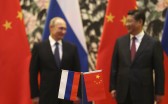
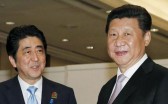
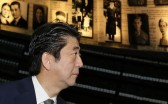
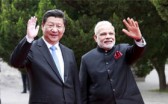
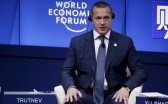
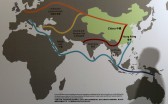


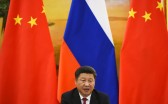
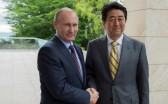
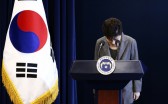
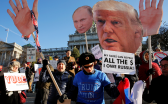
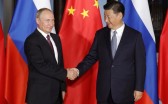
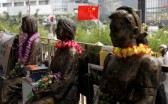
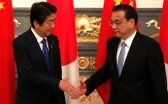
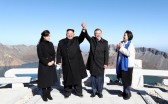
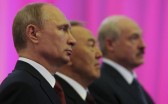
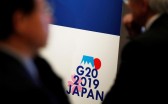


 Print
Print Email
Email Share
Share Facebook
Facebook Twitter
Twitter LinkedIn
LinkedIn